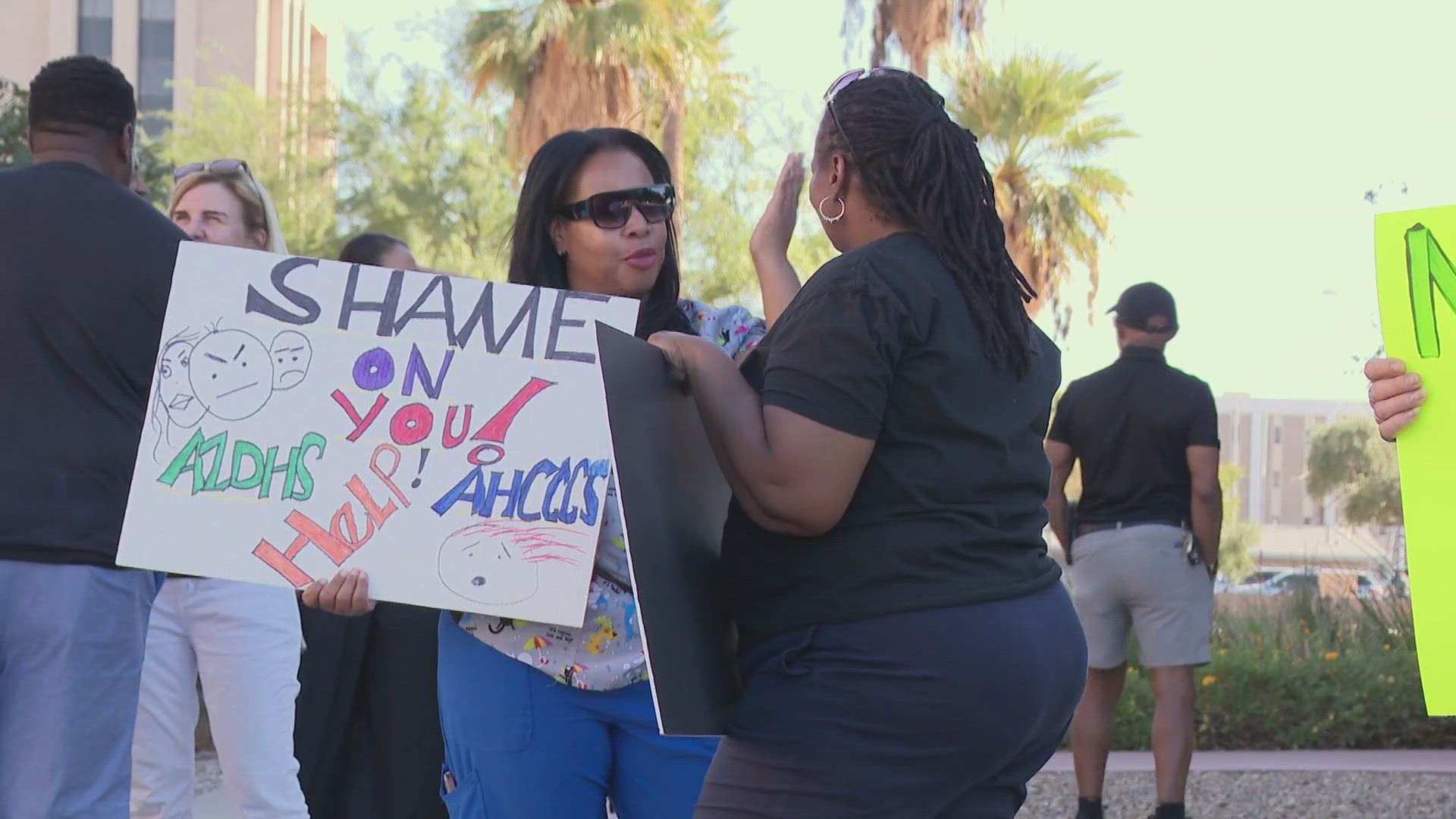PHOENIX — A massive slew of fraudulent group homes and shady sober living facilities has led to a huge crackdown on these healthcare providers. But some people are saying they were caught in the crossfire.
333 group homes are currently under investigation for fraud and the state has suspended their funding until further notice.
About two dozen of those suspended providers gathered in protest outside the Arizona Department of Health Services building on Tuesday wanting their voices to be heard. Claiming they did not commit fraud.
This comes in the midst of a major crackdown on shady sober living facilities and fraudulent group homes taking advantage of Native Americans, accused of not providing the population with care they need and taking advantage of federal tax dollars to do it.
“A lot of our Native people have passed away while in the care of these homes, and we feel that somebody needs to be held accountable to it,” said Kevin Maulson.
Maulson, who said he was born in the Chippewa tribe, is also a worker for the Blue Sage Healing Center. Owned and operated by Native Americans, Blue Sage Healing provides rehab to indigenous people using traditional healing methods.
In June, their facility was also suspended by the state.
“We know our people, we experienced the traumas of reservation lifestyle, and we know how to help them,” Maulson said. ”We're just coming up against resistance all the time.”
His organization has denied any allegations of fraud and are currently going through the court system to dissolve the suspension against it. While Maulson said it’s good to see the state going after those who are taking advantage of people, others are getting caught in the crossfire.
>> Download the 12News app for the latest local breaking news straight to your phone.
Andre Miller of Mesa, who runs a outpatient facility, said while he hasn’t been suspended for fraud allegations, he’s had to close down operations. Since the Arizona Health Care Cost Containment System (AHCCCS) which provides reimbursement to providers has implemented additional screenings to check for fraud, it’s led to longer delays in clinics receiving federal dollars, Miller claimed.
Miller said his clinic cared for about 15 patients before closing and finding them another facility to go to was difficult.
“A lot of the clinics that we refer them out to, now they're closed and then some that aren't closed aren't being paid,” Miller said.
The struggle now is finding a balance between suspending providers who are taking advantage of the system, but keeping others open who are providing the help that was promised.

